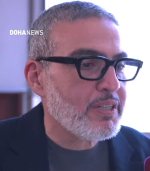Media
-
 UK culture secretary signals possible intervention in £500m Telegraph takeover
Britain’s culture secretary, Lisa Nandy, has signalled she may step in to review the proposed £500 million takeover of the Daily Telegraph by Daily Mail owner DMGT, a move that could open21 January 2026Read More...
UK culture secretary signals possible intervention in £500m Telegraph takeover
Britain’s culture secretary, Lisa Nandy, has signalled she may step in to review the proposed £500 million takeover of the Daily Telegraph by Daily Mail owner DMGT, a move that could open21 January 2026Read More... -
 Prince Harry takes the stand as privacy lawsuit against Daily Mail publisher begins at High Court
Prince Harry has arrived at the High Court in London for the opening of a major privacy trial against the publisher of the Daily Mail, marking the start of a legal battle expected to19 January 2026Read More...
Prince Harry takes the stand as privacy lawsuit against Daily Mail publisher begins at High Court
Prince Harry has arrived at the High Court in London for the opening of a major privacy trial against the publisher of the Daily Mail, marking the start of a legal battle expected to19 January 2026Read More... -
 Prince Harry to testify in High Court privacy battle against Daily Mail publisher
Prince Harry is set to return to a London courtroom next week, where he will personally give evidence in a high-profile privacy lawsuit against the publisher of the 'Daily Mail', marking another15 January 2026Read More...
Prince Harry to testify in High Court privacy battle against Daily Mail publisher
Prince Harry is set to return to a London courtroom next week, where he will personally give evidence in a high-profile privacy lawsuit against the publisher of the 'Daily Mail', marking another15 January 2026Read More... -
 UK government turns to TikTok to publicise immigration raids amid voter backlash
The British government has taken its immigration message to TikTok, launching an official account that showcases raids on people accused of working illegally. The move is aimed at sending a14 January 2026Read More...
UK government turns to TikTok to publicise immigration raids amid voter backlash
The British government has taken its immigration message to TikTok, launching an official account that showcases raids on people accused of working illegally. The move is aimed at sending a14 January 2026Read More... -
 Keir Starmer threatens action against Elon Musk over AI ‘Deepfake’ abuse on X
Prime Minister Keir Starmer has issued a stark warning to Elon Musk, urging the tech billionaire to rein in his AI chatbot Grok after it was reportedly used to create sexualized images of women13 January 2026Read More...
Keir Starmer threatens action against Elon Musk over AI ‘Deepfake’ abuse on X
Prime Minister Keir Starmer has issued a stark warning to Elon Musk, urging the tech billionaire to rein in his AI chatbot Grok after it was reportedly used to create sexualized images of women13 January 2026Read More...

Culture
-
 Karen Newman appointed to sculpt Queen Elizabeth II for National Memorial in St James’s Park
Renowned British sculptor Karen Newman MRSS has been appointed to create a new sculpture of Queen Elizabeth II as part of the UK’s national memorial to the late Monarch, the QueenRead More...
Karen Newman appointed to sculpt Queen Elizabeth II for National Memorial in St James’s Park
Renowned British sculptor Karen Newman MRSS has been appointed to create a new sculpture of Queen Elizabeth II as part of the UK’s national memorial to the late Monarch, the QueenRead More... -
 UK government unveils £1.5bn culture investment to save 1,000 local venues and restore national pride
The government has announced a landmark £1.5 billion investment in arts, culture and heritage, pledging to safeguard more than 1,000 local venues across England and reverse years ofRead More...
UK government unveils £1.5bn culture investment to save 1,000 local venues and restore national pride
The government has announced a landmark £1.5 billion investment in arts, culture and heritage, pledging to safeguard more than 1,000 local venues across England and reverse years ofRead More... -
 Museum of Oxford reveals 2026 programme focused on community stories, talks and events
The Museum of Oxford has unveiled its 2026 programme, setting out a year of talks, tours and hands-on events that place local people and shared histories firmly centre stage. The newRead More...
Museum of Oxford reveals 2026 programme focused on community stories, talks and events
The Museum of Oxford has unveiled its 2026 programme, setting out a year of talks, tours and hands-on events that place local people and shared histories firmly centre stage. The newRead More... -
 £9m Claude Lorrain masterpiece faces possible export as UK scrambles to keep Baroque treasure
A Baroque landscape masterpiece valued at £9 million has been placed under a temporary export ban, giving UK institutions a final opportunity to keep the work in the country.Read More...
£9m Claude Lorrain masterpiece faces possible export as UK scrambles to keep Baroque treasure
A Baroque landscape masterpiece valued at £9 million has been placed under a temporary export ban, giving UK institutions a final opportunity to keep the work in the country.Read More... -
 Welsh towns invited to compete for first-ever UK Town of Culture title
Could a Welsh town become the very first UK Town of Culture? Communities across Wales are being invited to step into the national spotlight as the UK launches its inaugural Town of CultureRead More...
Welsh towns invited to compete for first-ever UK Town of Culture title
Could a Welsh town become the very first UK Town of Culture? Communities across Wales are being invited to step into the national spotlight as the UK launches its inaugural Town of CultureRead More... -
 In Bloom: How plants shaped Britain and the modern world
Plants surround us every day – in our gardens, our homes and even in our cups of tea – yet few of us stop to consider the extraordinary journeys they have taken to get here.Read More...
In Bloom: How plants shaped Britain and the modern world
Plants surround us every day – in our gardens, our homes and even in our cups of tea – yet few of us stop to consider the extraordinary journeys they have taken to get here.Read More... -
 UK launches first town of culture competition to revive local pride and boost economic growth
The government has officially launched the UK’s first-ever Town of Culture competition, marking a major new push to restore pride in communities and drive cultural-led economic growthRead More...
UK launches first town of culture competition to revive local pride and boost economic growth
The government has officially launched the UK’s first-ever Town of Culture competition, marking a major new push to restore pride in communities and drive cultural-led economic growthRead More... -
 Government announces academy trust inspections to strengthen school accountability
New academy trust inspections to boost transparency for parents and strengthen outcomes for childrenRead More...
Government announces academy trust inspections to strengthen school accountability
New academy trust inspections to boost transparency for parents and strengthen outcomes for childrenRead More... -
 Cumbrian animated flood film scoops international science award
A short animated film featuring a red squirrel from Cumbria has won an international education award, shining a global spotlight on how trees can help tackle floodingRead More...
Cumbrian animated flood film scoops international science award
A short animated film featuring a red squirrel from Cumbria has won an international education award, shining a global spotlight on how trees can help tackle floodingRead More... -
 Inside an immersive Guildhall Art Gallery exhibition inspired by the London Tube
The sensory world of the London Tube is brought vividly to life in a new immersive exhibition at Guildhall Art Gallery, uniting painter Jock McFadyen RA with musicianRead More...
Inside an immersive Guildhall Art Gallery exhibition inspired by the London Tube
The sensory world of the London Tube is brought vividly to life in a new immersive exhibition at Guildhall Art Gallery, uniting painter Jock McFadyen RA with musicianRead More... -
 Researchers uncover ‘lost geometric code’ embedded in Oxford and Britain’s historic buildings
Researchers say they have uncovered a long-forgotten geometric code woven into some of Britain’s most famous historic buildings, including landmarks in Oxford.Read More...
Researchers uncover ‘lost geometric code’ embedded in Oxford and Britain’s historic buildings
Researchers say they have uncovered a long-forgotten geometric code woven into some of Britain’s most famous historic buildings, including landmarks in Oxford.Read More... -
 IWM Duxford to open new Second World War rooms revealing unseen artefacts and daily life of wartime pilots
IWM Duxford is set to open three newly restored Second World War spaces, offering visitors an intimate look at the lives of aircrew stationed at the Cambridgeshire airfield during the conflict.Read More...
IWM Duxford to open new Second World War rooms revealing unseen artefacts and daily life of wartime pilots
IWM Duxford is set to open three newly restored Second World War spaces, offering visitors an intimate look at the lives of aircrew stationed at the Cambridgeshire airfield during the conflict.Read More... -
 War-torn Trafalgar Union Flag faces possible departure from UK
A rare Union Flag that led the British charge at the Battle of Trafalgar has been placed under an export bar, giving UK institutions the chance to keep the historic relic in the country.Read More...
War-torn Trafalgar Union Flag faces possible departure from UK
A rare Union Flag that led the British charge at the Battle of Trafalgar has been placed under an export bar, giving UK institutions the chance to keep the historic relic in the country.Read More...

British Queen celebrates
Most Read
- Teen held after US woman killed in London stabbings
- Heave-ho Harry! Prince prepares to join the walking wounded in ice trek to North Pole
- Football: Farhad Moshiri adamant Everton deal above board
- "Master of English Style". Interview with Designer Lydia Dart
- Letter to the Financial Times from Lord Mayor Alderman Michael Bear
Culture

Archaeologists in south London have made an extraordinary discovery of a "completely unique" Roman mausoleum. The well-preserved remains were found at the Liberty of Southwark site in

The Chief Rabbi, Sir Ephraim Mirvis, known for his scholarly pursuits, has revealed his appreciation for the viral word puzzle game Wordle, emphasizing its ability to foster family bonds.

Manchester Jewish Museum has revealed the long-hidden contents of a time capsule discovered within the walls of a former synagogue. The glass container, found during a £6 million

Songs by Paul McCartney and John Lennon have been transformed into new Beatles tracks using artificial intelligence, evoking emotional responses from fans. The AI program was applied to

The Duchess of Kent made a rare public appearance to show her support for young musicians and highlight her passion for music. She hosted a special concert at St. James' Palace, along with

The Jewish Museum in London is preparing to close its building in Camden Town and relocate with a new operating model, according to Nick Viner, Chair of Jewish

Renowned musician Sir Elton John has voiced his belief that ending the AIDS epidemic by 2030 is both "possible and doable" as his charity, the Elton John AIDS Foundation, introduced a new

Artist Tash Frootko, renowned for her remarkable house painting projects, has once again captivated the city of Gloucester with her latest endeavor. Since 2018, Frootko has been using her

The UK Government has today committed £5m to support the recommendations of a memorialisation strategy that will be commissioned through the Northern Ireland

Bloomsbury Publishing, the renowned publisher of the Harry Potter series, announced an increase in its full-year profit, driven by the enthusiastic response of readers to





















